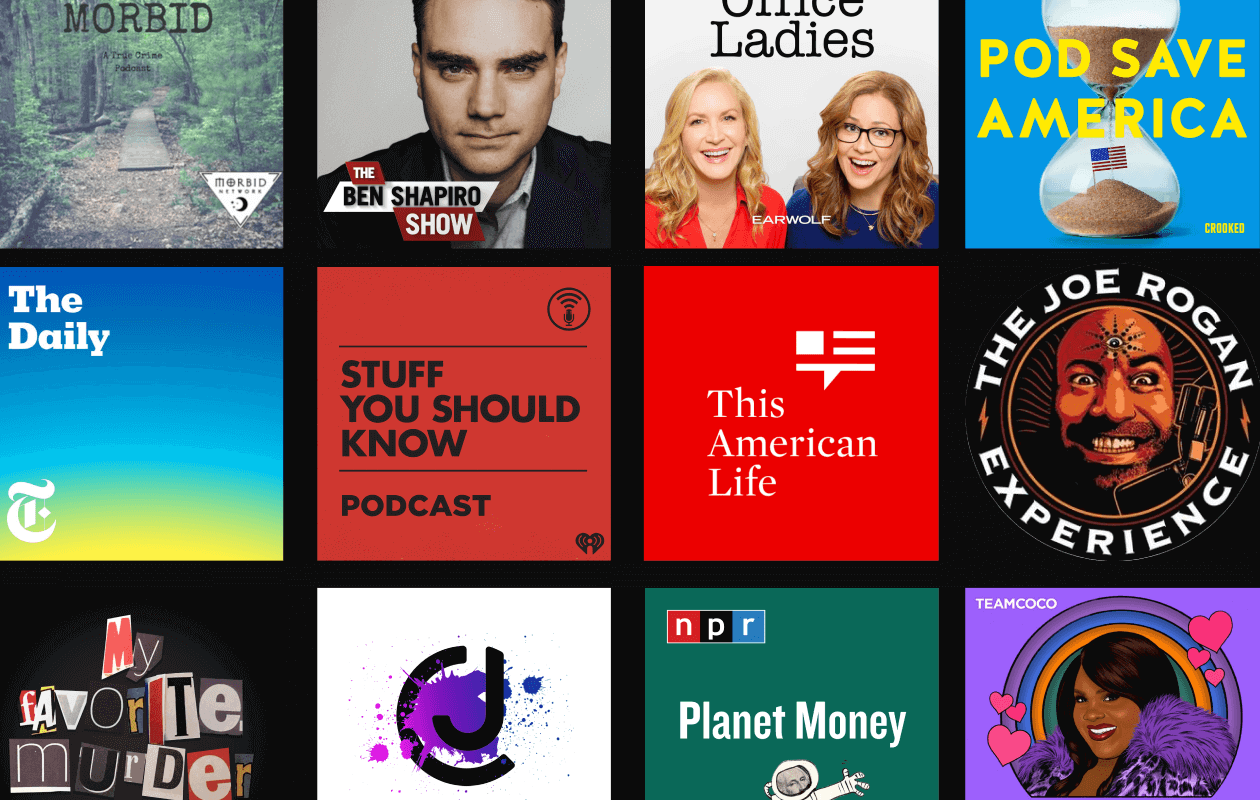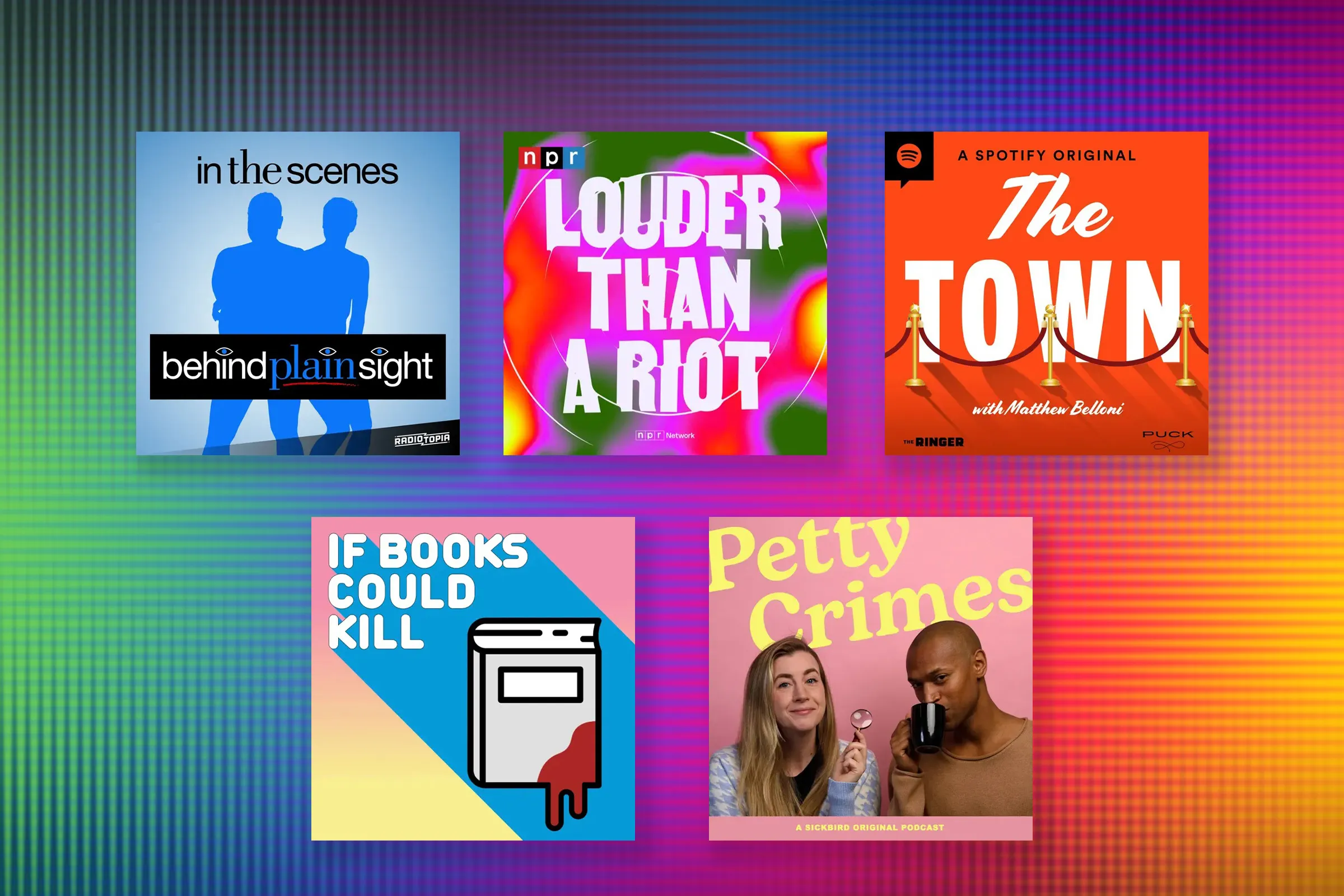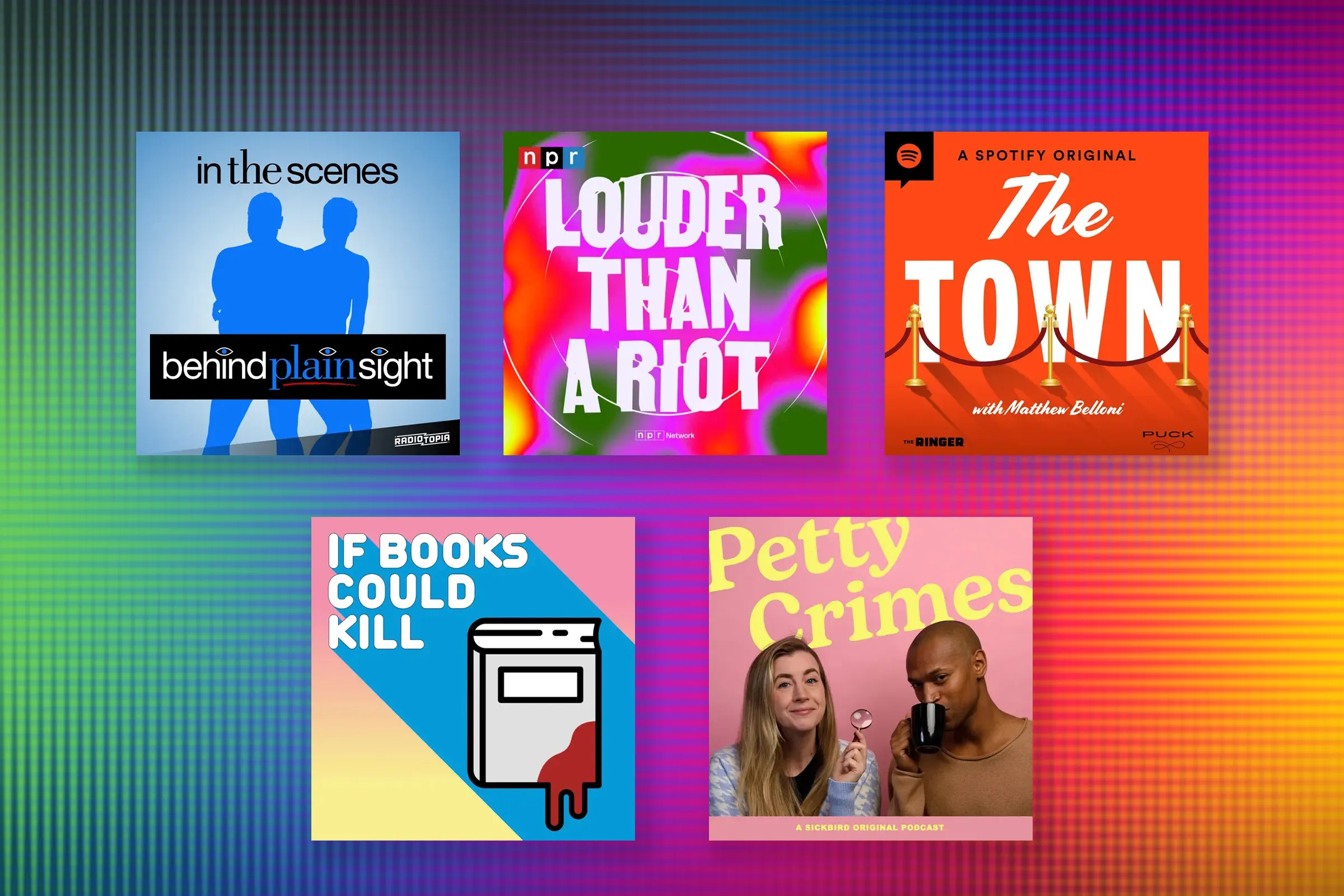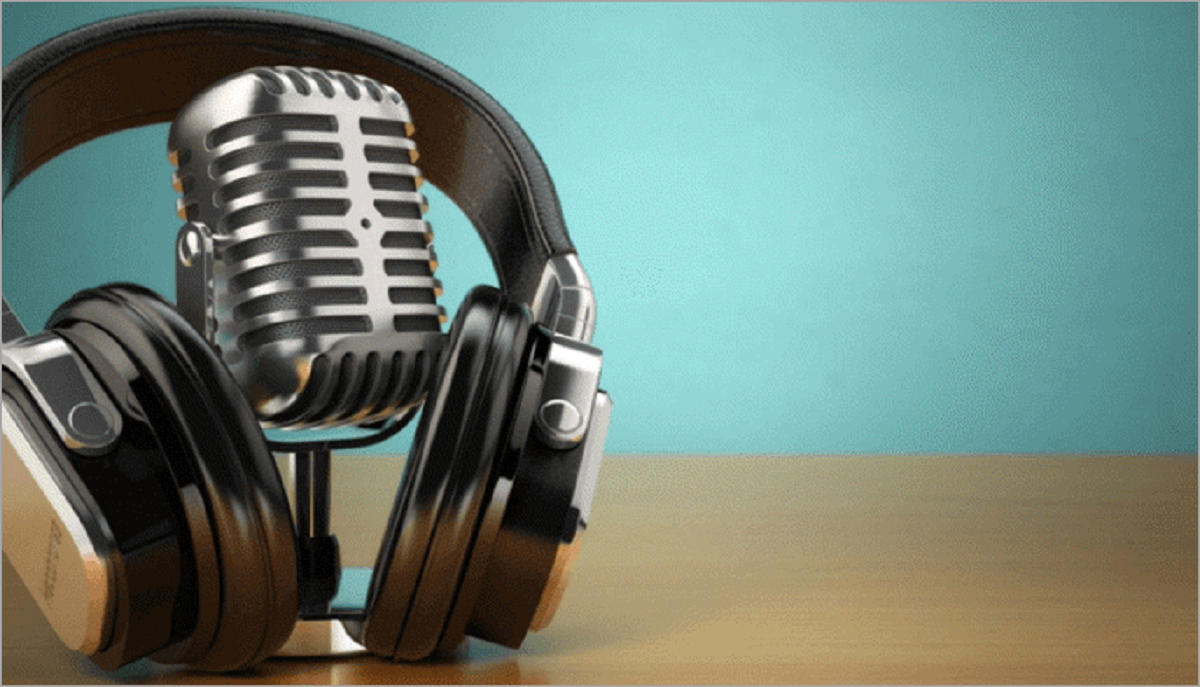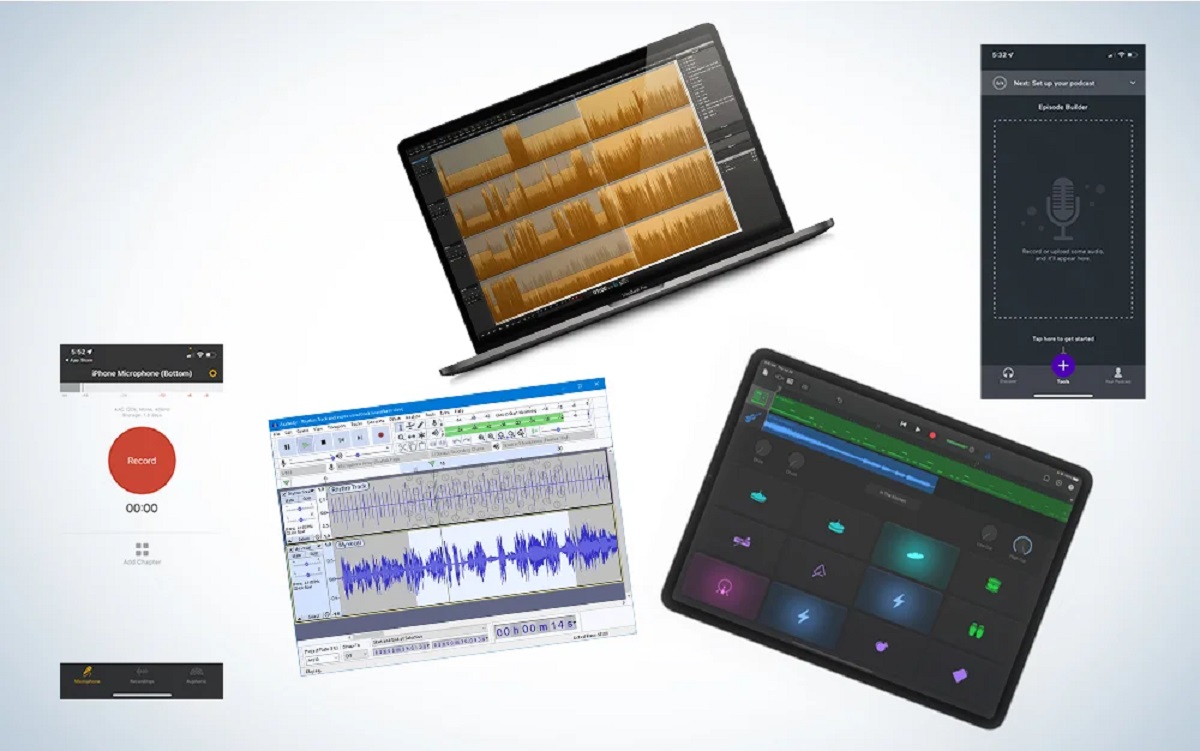What Is a Podcast?
A podcast is a form of digital media that allows users to listen to or watch audio and video content on demand. It is similar to a radio or television show, but with a key difference – podcasts are pre-recorded and can be accessed at any time, giving listeners the flexibility to consume content whenever they choose.
Podcasts cover a wide range of topics and interests, including entertainment, news, education, lifestyle, and more. They are typically released in episodes, which can vary in length and frequency, depending on the content creator. Users can subscribe to their favorite podcasts and receive automatic updates when new episodes are available.
What sets podcasts apart is their ability to provide a platform for in-depth discussions and storytelling. Unlike traditional media formats, podcasts allow for longer, more detailed conversations that delve into niche topics or explore personal experiences. Listeners can connect with hosts and guests on a more intimate level, feeling like they are part of the conversation.
Podcasts have gained immense popularity in recent years, with millions of shows available in various genres and languages. They offer a unique form of entertainment and education that can be enjoyed during commutes, workouts, or even while doing household chores.
Moreover, podcasts provide a voice to individuals who may not otherwise have a platform to express their ideas and share their stories. The accessibility and affordability of podcasting have democratized media production, allowing anyone with a microphone and a passion for content creation to enter the podcasting sphere.
Overall, podcasts have transformed the way we consume audio and video content. They have given rise to a thriving community of listeners, creators, and enthusiasts who are constantly pushing the boundaries of podcasting. Whether you are a fan of true crime, comedy, personal development, or cultural conversations, there is a podcast out there waiting to captivate and educate you.
The History of Podcasting
The origins of podcasting can be traced back to the early 2000s, although its roots can be found in earlier forms of online audio content. The term “podcast” is a combination of “iPod” and “broadcast,” as the popularization of Apple’s iPod played a significant role in its development and distribution.
In 2004, journalist and software developer Christopher Lydon and technology writer Dave Winer are often credited with coining the term “podcasting” and pioneering the format. Lydon’s podcast, “Radio Open Source,” and Winer’s creation of RSS (Real Simple Syndication) feeds for audio content paved the way for the podcasting revolution.
However, it was in 2005 that podcasting gained significant traction and recognition, thanks to the release of Apple’s iTunes 4.9, which included built-in podcasting support. This move made it easier for users to discover, subscribe to, and download podcasts, fueling its mainstream adoption.
As podcasting continued to grow in popularity, more individuals and organizations started creating and distributing their own shows. This led to an explosion of content covering a vast array of topics, catering to a diverse range of interests and audiences. The democratized nature of podcasting allowed independent creators and niche communities to thrive.
Over the years, podcasting platforms and dedicated apps emerged, making it even simpler for listeners to discover and access their favorite shows. Today, platforms like Apple Podcasts, Spotify, Google Podcasts, and Stitcher are among the most popular destinations for podcast consumption.
Furthermore, as the podcasting industry evolved, it attracted the attention of mainstream media and entertainment companies. Major broadcasters and celebrities began producing and hosting their own podcasts, bringing their fan bases and resources to the medium. This influx of high-quality content and investment further cemented podcasting as a respected and influential form of media.
In recent years, podcasting has experienced exponential growth, with the number of shows and listeners continuing to rise. The medium has also seen technological advancements, including live streaming, interactive podcasts, and the integration of video elements.
The future of podcasting looks promising, with the potential for even greater innovation and expansion. As more people discover the joys of consuming audio and video content on-demand, the podcasting landscape will continue to evolve, providing endless opportunities for creators and listeners alike.
How Do Podcasts Work?
Podcasts are made possible through a combination of technology and distribution channels that allow for the creation, hosting, and consumption of audio and video content. Understanding how podcasts work can help demystify the process and shed light on the inner workings of this popular medium.
At its core, a podcast is a series of media files, typically in audio format, that are hosted on a server. This server acts as a storage space for the episodes, making them accessible to users across the internet. When a creator produces a podcast episode, they upload it to their hosting platform, which generates a unique URL for that specific episode.
Listeners can access podcasts through various platforms or apps, such as Apple Podcasts, Spotify, or Google Podcasts. These platforms act as aggregators, gathering podcasts from different sources and providing a user-friendly interface for browsing, subscribing to, and playing episodes.
When a user subscribes to a podcast, their preferred podcast app automatically checks for new episodes and downloads them onto their device. This allows listeners to enjoy episodes offline and at their convenience. Additionally, podcasting apps utilize RSS feeds (Real Simple Syndication) to provide information about the episode’s title, description, release date, and author, making it easier for users to discover and organize their favorite shows.
The widespread adoption of smartphones and portable media devices has greatly contributed to the accessibility of podcasts. Users can listen to podcasts on the go, whether they’re commuting, exercising, or simply relaxing at home. With just a few taps, they can start, pause, rewind, or fast-forward through episodes, giving them complete control over their listening experience.
Podcasting offers a unique form of engagement and interaction between content creators and their audience. Listeners can leave reviews, comments, or ratings on episodes or connect with the host through social media platforms. This direct line of communication fosters a sense of community and allows for a more personalized listening experience.
It is worth mentioning that podcasting is not limited to audio-only content. Many podcasts incorporate video elements, which are often referred to as “vodcasts” or “video podcasts.” These types of podcasts can be found on platforms like YouTube or Vimeo, providing an additional layer of visual storytelling and engagement.
In summary, podcasts work by hosting media files on servers and making them accessible to users through podcasting platforms or apps. Listeners can subscribe to their favorite shows, automatically download episodes, and listen to them at their convenience. The rise of smartphones and portable media devices has made podcast consumption more accessible than ever. Through engagement features and the integration of video elements, podcasting allows for a dynamic and interactive listening experience.
Why Are Podcasts Popular?
Podcasts have experienced a meteoric rise in popularity in recent years, captivating millions of listeners worldwide. Several factors contribute to the widespread appeal and growing popularity of podcasts.
1. Flexibility and Convenience: One of the main reasons behind the popularity of podcasts is their flexibility and convenience. Unlike traditional media formats, podcasts can be consumed on-demand, allowing listeners to tune in whenever and wherever they choose. Whether it’s during a commute, workout, or relaxing at home, podcasts fit seamlessly into people’s busy lifestyles.
2. Deep Dives and Niche Content: Podcasts offer an opportunity for in-depth discussions and exploration of niche topics. Unlike traditional media platforms that adhere to strict time constraints, podcasts allow hosts and guests to delve into detailed conversations, providing listeners with valuable insights and expertise. This enables individuals to find content that caters specifically to their interests and passions.
3. Authentic and Personal Connections: Podcasts create a unique sense of connection and intimacy. Listeners often feel a personal connection to the hosts and guests, as podcasts offer a more conversational and unfiltered format. This authenticity fosters a sense of community and loyalty among listeners, who feel like they are part of the conversation.
4. Multitasking and Productivity: Podcasts provide an excellent way to make the most of otherwise idle time. People often listen to podcasts while performing other tasks, such as cleaning, driving, or exercising. This allows them to stay productive and informed while accomplishing routine activities, making podcasts a valuable source of entertainment and education.
5. Diverse Range of Topics: The podcasting landscape offers an extensive array of topics and genres to cater to different tastes and interests. Whether it’s true crime, comedy, politics, self-improvement, or storytelling, there is a podcast for every preference. The vast selection ensures that listeners can find content that resonates with them, further contributing to the popularity of podcasts.
6. Accessibility and Affordability: The accessibility of podcasts is a significant factor in their popularity. Anyone with an internet connection and a device can access podcasts for free, making it an inclusive and democratic medium. As podcasting does not require substantial financial investment, individuals and small-scale creators can participate and share their unique voices without significant barriers.
7. Continuous Learning and Personal Development: Podcasts have become a valuable educational resource for many listeners. They offer a wide range of informative and thought-provoking content, allowing listeners to learn and grow in various areas of interest. Whether it’s gaining insights from industry experts or exploring new perspectives, podcasts contribute to continuous learning and personal development.
These are just a few reasons why podcasts have gained immense popularity in recent years. As the medium continues to evolve and attract more creators and listeners, the possibilities for storytelling, education, and entertainment are boundless.
Different Types of Podcasts
Podcasts come in a wide range of genres and formats, catering to diverse interests and preferences. Here are some of the different types of podcasts you can explore:
- True Crime: True crime podcasts have gained significant popularity in recent years. They delve into real-life mysteries, unsolved crimes, and historical cases, captivating audiences with their gripping storytelling and investigative narratives.
- Comedy: Comedy podcasts lighten the mood with humor and laughter. Hosted by comedians or comedic duos, these shows feature witty banter, improvised comedy, and humorous discussions on various topics, providing a dose of entertainment.
- News and Current Affairs: News podcasts offer a convenient way to stay up-to-date with the latest local, national, and international news. They typically cover a wide range of topics, including politics, economics, science, and culture, providing in-depth analysis and expert insights.
- Interviews and Conversations: Interview-based podcasts feature discussions with notable individuals, experts, and influencers. These shows provide listeners with unique insights, personal stories, and valuable advice from guests across various fields, such as business, arts, and science.
- Self-Improvement: Self-improvement podcasts focus on personal development, offering guidance and strategies to enhance different aspects of life. Topics can include mental health, motivation, productivity, relationships, and spirituality, providing listeners with practical tools for growth and self-reflection.
- Storytelling and Narrative: Storytelling podcasts captivate listeners with engaging narratives. These shows feature fictional stories, dramatic retellings of historical events, or serial dramas, transporting listeners to different worlds and immersing them in compelling tales.
- Educational and Academic: Educational podcasts serve as a platform for learning and intellectual discussions. These shows cover a wide range of educational topics, including science, history, philosophy, literature, and technology, providing informative content and intellectual stimulation.
- Health and Wellness: Health and wellness podcasts focus on physical and mental well-being. These shows cover topics such as fitness, nutrition, mindfulness, meditation, and holistic approaches to health, offering advice and inspiration to live a healthier lifestyle.
- Business and Entrepreneurship: Business podcasts cater to aspiring entrepreneurs, business professionals, and individuals interested in startups and entrepreneurship. These shows feature interviews with successful entrepreneurs, discussions on business strategies, and insights into the world of finance, marketing, and leadership.
- Technology and Science: Technology and science podcasts explore the latest advancements and trends in the digital world, as well as scientific discoveries and breakthroughs. These shows offer insights into the tech industry, innovative ideas, and discussions on cutting-edge research and developments.
These are just a few examples of the diverse range of podcast genres available. Whether you’re seeking entertainment, knowledge, inspiration, or a combination of all three, there’s a podcast out there to cater to your interests and expand your horizons.
How to Listen to a Podcast
Listening to podcasts has never been easier, thanks to the availability of various platforms and apps that make podcasting accessible across different devices and operating systems. Here’s a step-by-step guide on how to listen to a podcast:
- Choose a Podcast App: Start by selecting a podcast app or platform that suits your preferences. Popular options include Apple Podcasts, Spotify, Google Podcasts, Stitcher, and Overcast. These apps can be downloaded from your device’s app store.
- Discover Podcasts: Explore different podcast genres to find shows that interest you. You can search for specific keywords, browse curated lists, or access recommendations based on your listening history. You can also ask friends or fellow podcast enthusiasts for recommendations.
- Subscribe to Podcasts: Once you find a podcast you want to follow, subscribe to it. Subscribing ensures that you receive automatic updates when new episodes are released. This way, you won’t miss any of your favorite shows.
- Download Episodes: Depending on your preferred settings, podcast episodes can be automatically downloaded or manually downloaded for offline listening. Downloading episodes in advance allows you to listen to them without using your mobile data or when you don’t have an internet connection available.
- Create Your Playlist: Organize your podcast episodes by creating playlists or queues. This allows you to curate a personalized listening experience and prioritize the episodes you want to listen to first.
- Set Playback Controls: Most podcast apps offer playback controls, such as play, pause, skip forward, and rewind. Familiarize yourself with these controls to navigate through episodes and adjust playback speed according to your preferences.
- Leave Reviews and Ratings: Show appreciation for your favorite podcasts by leaving reviews and ratings on the app or podcast platform. This helps podcast creators gain visibility and provides feedback to improve their shows.
- Interact with Podcasts: Engage with the podcast community by interacting with hosts and fellow listeners. Some podcasts have social media groups, forums, or email newsletters where you can share your thoughts, ask questions, and connect with others who share your interests.
- Support Podcasts: Consider supporting your favorite podcasts financially if they offer membership or crowdfunding options. This allows you to contribute to the sustainability and growth of the shows you enjoy.
- Discover New Podcasts: Continuously explore new podcasts to keep your playlist fresh and diverse. Follow recommendations, browse through charts and categories, and stay curious about emerging shows and hosts.
By following these steps, you can begin your podcast listening journey and explore the vast and exciting world of podcasting.
Finding the Right Podcast for You
With thousands of podcasts available across various genres and topics, finding the right podcast for you can seem like a daunting task. However, with a little guidance, you can discover shows that cater to your interests and keep you engaged. Here are some tips for finding the right podcast:
- Identify Your Interests: Start by considering the topics or genres that interest you the most. Think about your hobbies, passions, or areas you want to learn more about. Identifying your interests will help narrow down the vast podcasting landscape.
- Ask for Recommendations: Reach out to friends, family, or coworkers who are avid podcast listeners. They may have suggestions based on your interests or be able to recommend popular podcasts that align with your preferences.
- Browse Podcast Directories: Explore podcast directories and platforms like Apple Podcasts, Spotify, or Google Podcasts. These platforms typically categorize podcasts by genres, making it easier to find shows that appeal to your specific interests.
- Read Reviews and Ratings: Pay attention to reviews and ratings of podcasts. This can give you valuable insights into the quality, content, and overall listening experience offered by different shows. Use these reviews as a guide to find podcasts that resonate with other listeners.
- Sample Different Episodes: Listen to the first few episodes of different podcasts to gauge if the show aligns with your expectations. This will give you a feel for the format, the host’s style, and the overall atmosphere of the podcast.
- Consider Podcast Length and Frequency: Take into account your available time and preferred listening schedule. Some podcasts release new episodes daily, while others may have weekly or monthly updates. Likewise, the duration of episodes can vary. Choose shows that fit your listening routine and time constraints.
- Follow Hosts or Creators: If you enjoy the style and content of a particular podcast host, consider exploring other shows they have been involved in. Many hosts have multiple podcasts or may make guest appearances on other shows, offering an opportunity to discover related content.
- Join Podcast Communities: Engage with podcast communities through social media groups, online forums, or dedicated podcasting apps. These communities can provide recommendations, discussions, and a space to connect with other podcast enthusiasts who may share similar tastes.
- Experiment and Explore: Don’t be afraid to step out of your comfort zone and try podcasts outside your usual interests. Some of the most rewarding podcast discoveries come from unexpected sources. Give different genres or niche shows a chance – you may stumble upon hidden gems.
Remember that podcast preferences are highly subjective, and what works for one person may not work for another. Experiment with different shows and hosts until you find the podcasts that resonate with you the most. Enjoy the journey of discovery and let the podcasting world open up new avenues of knowledge, entertainment, and connection.
Podcasting Tips and Tricks
Starting your own podcast requires careful planning and execution to ensure success. Whether you’re an aspiring podcaster or have already launched your show, here are some tips and tricks to enhance your podcasting journey:
- Define your niche: Determine your podcast’s focus and target audience. A well-defined niche allows you to cater to a specific market and attract dedicated listeners who are genuinely interested in your content.
- Create compelling content: Develop engaging and informative content that captivates your audience. Keep episodes well-structured, with a clear theme or topic, and try to present unique perspectives or offer valuable insights to keep listeners coming back for more.
- Invest in good quality equipment: Use a decent microphone, headphones, and recording software to ensure clear and professional-sounding audio. A poor audio quality can deter listeners and diminish the overall quality of your podcast.
- Plan and script your episodes: Outline your episodes and consider scripting certain parts to maintain a cohesive narrative. This helps you stay organized and ensures a smooth flow of content, minimizing the chances of awkward pauses or rambling.
- Promote your podcast: Develop a marketing strategy to spread the word about your podcast. Leverage social media, create a website or blog, collaborate with other podcasters, or even consider guest appearances on other shows to increase your visibility and attract new listeners.
- Engage with your audience: Foster a sense of community by interacting with your listeners. Respond to comments, emails, or messages from your audience, and consider incorporating their feedback or questions into future episodes. This helps build a loyal and engaged listener base.
- Consistency is key: Release new episodes on a consistent schedule to maintain audience engagement and loyalty. Whether it’s weekly, bi-weekly, or monthly, set a realistic schedule that you can stick to without compromising the quality of your content.
- Learn from analytics: Utilize podcast analytics to gain insights into your listenership. Understand which episodes perform well, demographics of your audience, and listener engagement. This data can guide future content decisions and help you understand your audience better.
- Guests and collaborations: Consider featuring guests or collaborating with other podcasters to bring fresh perspectives and expand your network. This not only adds variety to your show but also exposes your podcast to new audiences.
- Continuous improvement: Always strive to improve your podcast. Seek feedback from your listeners, stay updated with podcasting trends and techniques, and invest time in learning new skills related to editing, storytelling, or interviewing to enhance the overall quality of your show.
Remember, podcasting is a creative and evolving medium. Embrace the learning process, experiment with different techniques, and find your unique style. Your passion, dedication, and commitment to producing high-quality content will ultimately make your podcast stand out and resonate with listeners.
Benefits of Starting Your Own Podcast
Starting your own podcast can be a rewarding and fulfilling endeavor with numerous benefits. Whether you’re a content creator, an expert in a specific field, or simply have a passion for storytelling, here are some of the advantages of starting your own podcast:
- Platform for Self-Expression: Podcasting provides a platform for self-expression and sharing your unique voice. It allows you to explore and discuss topics that you’re passionate about, providing an outlet for creativity and personal growth.
- Building a Community: Podcasting helps you connect with a like-minded audience. As listeners subscribe to your podcast and engage with your content, you build a community of loyal supporters who appreciate your perspectives, insights, and storytelling style.
- Establishing Authority and Expertise: Hosting a podcast positions you as an authority in your field. Delivering valuable insights and knowledge to your listeners can help establish your credibility and expertise, opening doors to new opportunities such as speaking engagements, collaborations, or even media appearances.
- Platform for Networking: Podcasting provides a unique platform for networking and building relationships with guests you invite on your show. This opens avenues to connect with experts, influencers, and professionals in your industry, enabling you to expand your network and learn from their experiences.
- Creative Control: As a podcaster, you have complete creative control over your content. You can choose the format, topics, and guests, allowing you to express your creativity and storytelling style freely. This creative autonomy fosters a sense of fulfillment and ownership over your work.
- Opportunity for Learning and Growth: Hosting a podcast provides an opportunity for continuous learning and growth. Through conducting interviews, researching for episodes, and exploring diverse perspectives, you expand your knowledge on various topics and develop new skills such as interviewing, editing, and storytelling.
- Monetization Potential: Podcasting offers various avenues for monetization. Once you have built a solid listener base, you can explore opportunities such as sponsorships, merchandise sales, crowdfunding, or even premium content subscriptions. Monetizing your podcast can potentially turn your passion project into a sustainable income source.
- Improving Communication Skills: Podcasting hones your communication skills, including public speaking, active listening, and improvisation. Hosting a podcast allows you to practice articulating your thoughts, engaging with guests, and mastering the art of storytelling, which can benefit you both personally and professionally.
- Impact and Influence: Podcasting provides a platform to make a positive impact and influence others. Through sharing your insights, experiences, and stories, you have the power to inspire, educate, entertain, or motivate your audience, making a difference in their lives.
- Enjoyment and Personal Fulfillment: Ultimately, podcasting is a source of enjoyment and personal fulfillment. Sharing your passion with an audience who appreciates your content can be immensely rewarding and gratifying, creating a sense of purpose and satisfaction.
Starting your own podcast offers a wide range of benefits, from personal and professional growth to networking opportunities and creative expression. It allows you to leave a lasting impact on your audience and make your mark in the podcasting world.
Conclusion
Podcasting has revolutionized the way we consume audio and video content, offering a flexible and engaging platform for entertainment, education, and storytelling. With its wide range of genres, topics, and formats, podcasts cater to diverse interests and provide a unique avenue for self-expression and connection.
Throughout this article, we explored various aspects of podcasting, from understanding what a podcast is to finding the right podcast for your interests. We discussed the history of podcasting and how it has evolved into a mainstream medium, as well as the inner workings of podcasts and the reasons behind their popularity.
We also provided practical tips for launching your own podcast, from selecting the right equipment to promoting and engaging with your audience. Additionally, we explored the benefits of starting your own podcast, including building a community, establishing authority, and the potential for monetization.
In conclusion, podcasting continues to grow and thrive, connecting creators and listeners in a meaningful way. Whether you’re a listener seeking entertainment and knowledge or an aspiring podcaster wanting to make your voice heard, podcasts offer a wealth of opportunities for personal and professional growth. So, dive into the world of podcasting, explore new shows, and consider starting your own podcast to share your passions and connect with an audience that shares your interests.










